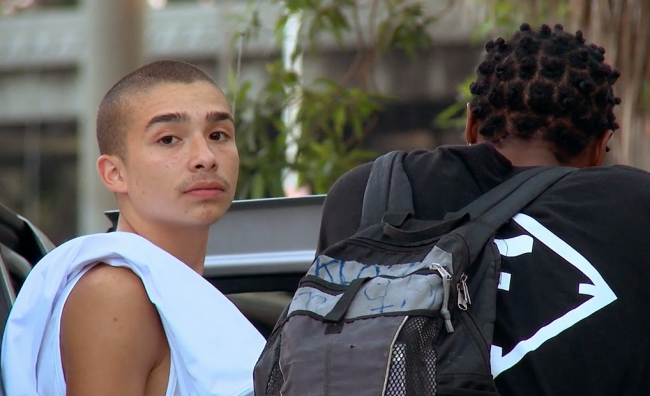
They Call Us Monsters (2017) Review
No easy answers about a system that tries youths as adults.
They Call Us Monsters is a documentary about the problems of youths who have committed crimes that allow for them to be tried as adults.
They Call Us Monsters tells the story of young men locked away in a juvenile detention center in California. The film poses an interesting question about what kind of punishment these inmates should face as some of them have committed monstrous crimes. However, they are young, not yet adults, so should their whole lives be ruined because of what some might call an adolescent mistake? In a lot of states, juvenile offenders are tried as adults and can receive multiple life sentences, basically ensuring that they will never leave prison; never be free.
Directed by Ben Lear, They Call Us Monsters follows three kids (men?) in the detention center as they partake in a screenwriting class led by Gabriel Cowan, one of the film’s producers. Through these discussions, we get an interesting perspective into each of their lives. One of the boys in particular, Juan, really seems to be remorseful and carries the weight of what he’s done and what it means for the rest of his life. On the other hand, another of the boys, Antonio, comes right out and says that he doesn’t regret any of his choices. But who can tell what the truth is behind what they say on camera?
Although They Call Us Monsters is an eye-opening experience and it certainly tells a story that needs be told, it doesn’t offer an opinion on what steps should be taken to help the situation. It’s obvious that the system doesn’t work, there isn’t even an attempt at rehabilitation, but it’s difficult to determine what Lear proposes as an alternative. More so, it’s hard to feel very sympathetic towards these teens. They’re violent offenders who will likely re-offend if released (and do in Antonio’s case). But what options do they have? When Antonio is released he’s put back into the same environment of poverty and crime. Shortly thereafter, his mother gets evicted from their house, causing them to move into Antonio’s aunt’s already cramped apartment, so Antonio chooses not to stay and essentially becomes homeless. It’s undoubtedly a tremendously difficult situation, but there must be a way to better support and rehabilitate these young men instead of just throwing them back into the world.

During the screenwriting classes we see these boys as just that … boys. They joke around, they’re immature, they’re insecure; it’s almost enough to make you forget that they’re in prison for a reason. Almost. In fact, the only thing that takes away from these insightful moments is Cowan, who gets frustrated with the boys (particularly Jarad) when they act up. They obviously need a strong voice of discipline as they are definitely the type that will take a mile if you give them an inch so the “heal with love” philosophy wouldn’t work with them either. But instead of being stern to get them back on track, he loses his patience and it seems like his primary motive in being there then is to make the documentary as opposed to helping the boys.
Overall, They Call Us Monsters is a much-needed conversation starter for a really important issue. It’s very well made and insightful. For too long these juvenile offenders have just been sent away to rot in prison for their whole lives with no hope. Something needs to be done, I just wish Lear had explored more suggestions as to what that should be.
They Call Us Monsters is now available on iTunes and On Demand.
